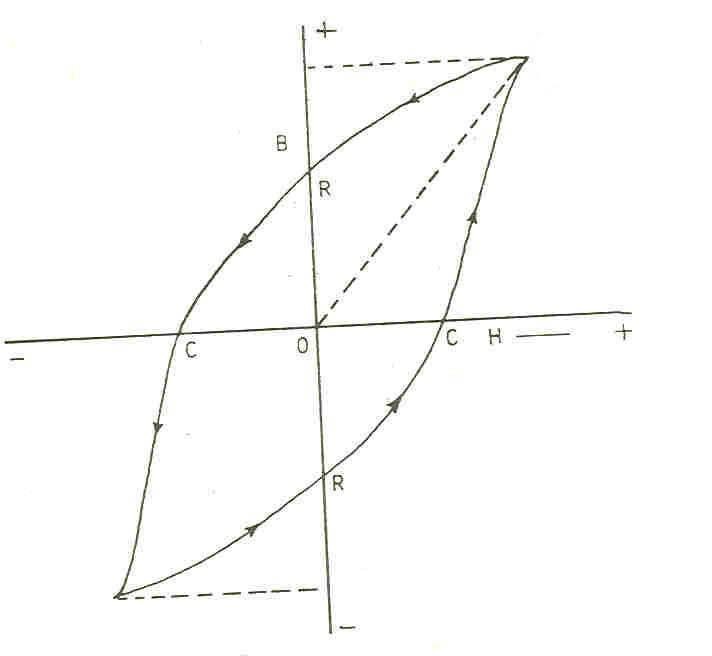Chapter: Hysteresis loop flux density B ferromagnetic material
Hysteresis loop

In
a ferromagnetic material, the flux density B increases when external applied
magnetic field H to it is increased. When the saturation arrives, the increase
in flux ceases even though H may be increased. This has be shown by OS in the
fig. If the external field is gradually reduced, the original curve OS is not
retraced but follows curve SR. The external field H is reduced to zero but B
does not reduce to zero i.e. the material remains magnetised. The value of R
flux density is called remanent flux density or residual magnetism. In order to
demagnetise the material completely, external magnetic field must be reversed
and when it reaches the value OC in reverse direction, it is seen that B is
zero. This applied reverse magnetising force, which causes B to become zero is
called coercive force. Further increase of H in reverse direction will now
increase in B in reverse direction and again at the point S saturation occurs.
The residual magnetism in reverse direction is represented by OR and to
neutralise it H must be increased in positive direction to the value OC.
Further increase in H will again magnetise the material and saturation will
occur at S. The above property is characteristic of magnetic behaviour of the
ferromagnetic material. When the material is taken through one complete cycle
of magnetisation, it traces a loop called hysteresis loop. When a material is
subjected to cyclic changes of magnetisation, the domains change the direction
of their orientation in accordance with H. Work is done in changing the
direction of domains, which leads to production of heat within the material.
The energy required to take the material through one complete cycle of
magnetisation is proportional to the area enclosed by the loop.
Related Topics